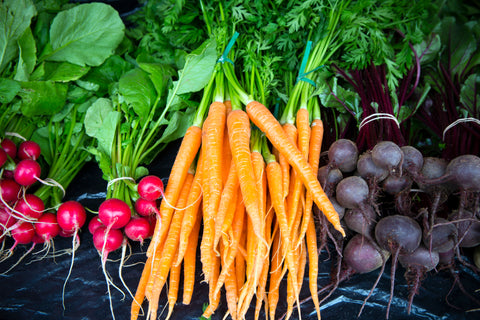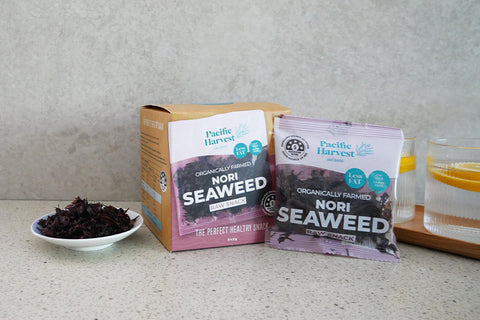There are a number of reasons for this, other than the most obvious (stress, less social and community interaction), eating patterns and habits may have also changed. Possibly we have been indulging in more treats than usual or increasing alcohol consumption.
And while all these things seem to take the pressure off and help us navigate through current circumstances, if we are to continue, increased energy and a sense of spark cannot be expected to miraculously return.
Now is the time to switch up daily habits and begin some bodily ‘house-keeping’ so that we may arrive at summer feeling our very best!
Our liver is tasked with a multitude of jobs, from creating and altering important nutrients to metabolizing medications and excreting toxic substances. When the livers workload increases beyond its normal capacity, a ‘backlog’ begins to form. As a result, we might feel sluggish, irritable, headachy or experience skin disruptions such as acne, rashes and increased sensitivity.
There are certain foods and substances in our diet that can unnecessarily burden this workload, such as poor quality and trans fats (often in deep fried or commercially baked goods), refined sugar and other heavily processed foods.
Alcohol and caffeine are also considered ‘liver loaders’ as they are heavily dependent on the liver to be metabolized and excreted.
Take note of what you’re putting into your body daily, or have been over the last few months, and aim to reduce or eliminate foods listed above for 1-2 weeks. By giving the liver a break from a constant influx of these substances, the everyday processes it carries out can continue without delay.
Just as there are things that can contribute to the liver being overworked, luckily, there are delicious items of fresh produce that are supportive to the liver and can help encourage its function after prolonged periods being overloaded.
For a gentle pre-summer cleanse, aim to swap out any ‘liver loaders’ in your diet with a variety and abundance of the ‘liver lovers’ listed below.
Vegetables such as raw carrot and beetroot, brassica’s (broccoli, cabbage, kale) and those containing sulphur (garlic), provide us with several phyto-nutrients that are essential co-factors required for detoxification pathways.
Turmeric and rosemary are two common culinary herbs that have powerful liver supportive qualities. They are extremely versatile and can be added to meals fresh, dried or powdered.
Bitter greens such as rocket, mustard, kale, endive and dandelion have a secondary benefit to liver function, as consumption of these bitter leaves stimulate production of gastric juices. Gastric juices are necessary for the proper breakdown of ingested foods thus, facilitating digestion. When food is properly broken-down and easily digestible, nutrients are readily assimilated and used to facilitate metabolic processes such as detoxification. A handful of bitter greens can be added to each main meal for ultimate digestive and liver support.
Medicinal herbs are excellent therapeutic aids. A sentiment which is true when it comes to supporting organ systems and mechanisms involved in detoxification. The three herbal medicines listed below are often used to support function of the liver and digestion.
Milk thistle (Silybum marianum) is excellent for the liver, particularly in cases where alcohol is frequently consumed in excess. In a non-stimulating way, Milk Thistle helps protect the liver cells (hepatocytes), assist the restoration of any damage sustained, increase bile production and acts as a powerful antioxidant.
Flower buds of Globe artichoke (Cynara scolymus) are a delicious food often found in Mediterranean cuisine, but also possesses therapeutic properties within its leaves. Extract of Cynara leaves helps protect and restore hepatocyte function as well as encouraging detoxification processes and promoting elimination of toxic body waste. It is also a bitter tonic and choleretic which stimulates production of gastric juices to aid digestion.
Often overlooked as a garden weed, Dandelion (Taraxacum officinale) leaf and root is a well-known ally of digestive function. Traditionally, dandelion root was used as a bitter tonic to help relieve heartburn. Dandelion leaf is mineral rich and can help stimulate elimination of excess body fluid (a diuretic). An action which is particularly helpful to also ensure elimination of toxic waste via the kidneys.
To further support dietary efforts of a pre-summer cleanse, these medicinal herbs can be ingested as a herbal tea infusion or taken as a prescribed liquid herbal formula. Best practice is to begin slow, with 1 cup of herbal tea per day (if appropriate) and gradually increase over time.
Safety note : it is critical to speak to any of our qualified Naturopaths before beginning any herbal medicines, especially those listed above as they may interact with medications or be un-suitable for different life stages (children, pregnancy, breastfeeding etc).
- Article by Naturopath and Herbalist Kate Dalliessi.




